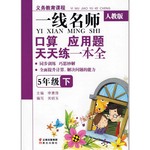题目内容
16.Tu Youyou,born in December,1930,is a Chinese scientist and educator.She is best known for discovering artemisinin (青蒿素) used to treat malaria (疟疾),which has saved millions of lives.For her work,Tu received the 2015 Nobel Prize in Medicine.Scientists worldwide had tried over 240,000 medicines to treat malaria without success.In 1969,Tu Youyou,then 39 years old,decided to turn to traditional Chinese herbs(草药) for possible solutions.She looked into the Chinese medical classics in history,visiting traditional Chinese doctors all over the country on her own.She gathered her findings in a notebook,in which she recorded 640 methods of treating malaria.She and her team also experimented with over 2,000 traditional Chinese herbs.
During this time,her husband was forced to work in the countryside,and their young daughter had to take care of herself in Beijing.
Years of research all came down to one type of herb named qinghao.The animal tests showed it was completely effective in mice and monkeys,So Tu volunteered to be the first human subject."As head of this research group,I had the responsibility'she said.It was safe with,her; so she continued to try it out with more human patients.
In 2007,her office was in an old apartment building in Beijing.Before 2011,Tu Youyou had been described as"almost completely forgotten by people1",Yet in 2015,the Nobel Prize committee said her discoveries had given the world powerful new ways to fight a powerful disease which affected hundreds of millions of people every year.In terms of improving human health and reducing suffering,Mrs.Tu's contribution is beyond words.
43.How did Tu Youyou find qinghao as a treatment?B
A.By testing it on children.
B.By researching for years.
C.By reading foreign books.
C.By asking malaria patients.
44.What does the underlined word"effective"mean in Paragraph 4?A
A.Successful.
B.Useless.
C.Unclear.
D.Normal
45.What can we infer from the last paragraph about Mrs.Tu?C
A.She couldn't afford an apartment in Beijing.
B.She didn't want her findings to be known.
C.She didn't care much,for fame while researching.
D.She wasn't able to describe her findings dearly.
分析 本文写了中国的科学家屠呦呦研究青蒿素并获得世界诺贝尔医学奖的故事.
解答 43.B 细节理解题.根据句子She gathered her findings in a notebook,in which she recorded 640 methods of treating malaria.She and her team also experimented with over 2,000 traditional Chinese herbs.她把自己的发现记录在一个笔记本上,记录了640种治疗疟疾的方法,她和她的团队也试验了2000多种中药.涂有有找到了青蒿治疗是通过多年的研究,答案选B.
44.A 词义猜测题. 根据最后一句:It was safe with,her; so she continued to try it out with more human patients这对她来说是安全的,所以她继续用更多的人类病人进行试验.可见前文中在老鼠和猴子身上的实验是成功的,所以effective与Successful"成功的"意义相同,所以答案选A.
45.C 推理判断题.根据句子Tu Youyou had been described as"almost completely forgotten by people.涂有有曾被称为"几乎完全被遗忘的人",可以推断出她在研究时并不在乎名声.所以答案选C.
点评 故事类文章在阅读过程中,我们一直在某个线索的引导下,随着作者的思路去了解一个故事或一件事情的始末,因此会感到比较轻松.命题往往从故事的情节、人物或事件之间的关系、作者的意图和态度、故事的前因和后果等方面入手,考查学生对细节的辨认能力以及推理判断能力. 阅读故事类文章时,应注意把握主旨大意,弄清主要情节,立足文章的内容揣摩作者的态度和意图,根据文章的情节展开合理的想象,从而达到解题的目的.

 新课标同步训练系列答案
新课标同步训练系列答案 一线名师口算应用题天天练一本全系列答案
一线名师口算应用题天天练一本全系列答案London Mayor Boris Johnson will unveil plans today to make youngsters sign a‘courtesy pledge'(礼仪宣言) to promise to behave in a (69)D manner when travelling in the capital.
The three-point pledge states that they will give up their seats to the elderly,pregnant and disabled; avoid using (70)B or threatening language; and be courteous and polite to fellow passengers and staff.
Those who refuse,or are caught behaving in a loutish manner,will have their free travel passes (71)D.
The plan-a key part of Mr.Johnson's re-election bid-will (72)D affect the 400,000 11-to-15-year-olds in London who (73)B free travel cards,but Tory sources believe the idea could be used across the country.
A Conservative insider said:‘The (74)D matches perfectly with the push to create a Big Society.It is about changing culture and expectations around behavior to improve the(75)A on buses and trains for everyone.'
Speaking before today's launch,Mr.Johnson said he was determined to(76)B the anti-social behavior of a‘minority of youngsters'on public transport.
‘When I was a boy,I was taught to stand up for those less able to,'he said,‘Youngsters enjoy the privilege of free travel,which is paid for by Londoners,but they have to understand that with that privilege comes(77)D.Anyone who abuses this privilege will have it taken away,and will have to earn that right back.'
Teenagers found (78)C a serious breach(违反) of the new behavior code will lose their travel passes,and will have to carry out unpaid community work to have them(79)B.
Mr.Johnson is also introducing a‘two strikes and you're out'policy to deal with offenders,under which those committing a second serious breach of the code will lose their travel rights (80)B.
The move follows an earlier initiative of Mr Johnson's that banned the(81)D of alcohol on public transport in the capital,which is credited with helping to(82)C crime rates on buses and trains.
| 68.A.exciting | B.pleasant | C.free | D.industrial |
| 69.A.respective | B.respectable | C.impolite | D.respectful |
| 70.A.sympathetic | B.offensive | C.moody | D.impatient |
| 71.A.supervised | B.issued | C.suspected | D.removed |
| 72.A.undeniably | B.superficially | C.consequently | D.initially |
| 73.A.apply for | B.qualify for uncovered | C.stand for | D.strive for |
| 74.A.experiment | B.application | C.background | D.initiative through |
| 75.A.atmosphere issues | B.principle | C.excellence | D.scheme |
| 76.A.protest | B.address | C.stimulate | D.sponsor |
| 77.A.exceptions | B.routine | C.preference | D.responsibility habit |
| 78.A.clear of | B.aware of | C.guilty of inaccurate | D.charge of |
| 79.A.checked | B.restored | C.suspended | D.guaranteed |
| 80.A.strictly | B.permanently | C.unconsciously | D.severely |
| 81.A.display | B.manufacture | C.production | D.consumption |
| 82.A.put down | B.put away | C.drive down | D.drive off |
| A. | cause;treated | B. | lead;treating | ||
| C. | suffer;to treat | D. | make;being treated |